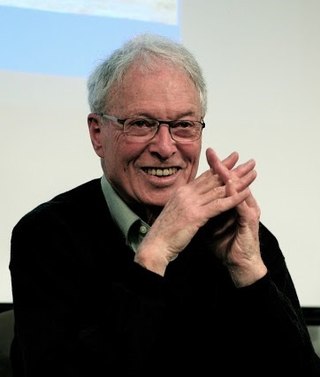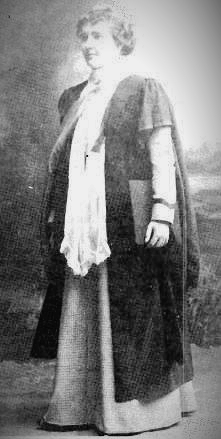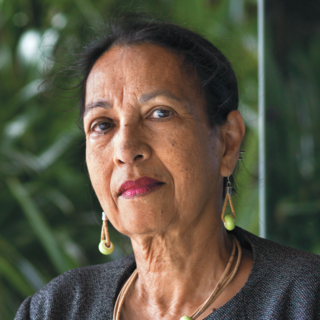Related Research Articles

The term tribe is used in many different contexts to refer to a category of human social group. The predominant worldwide usage of the term in English is in the discipline of anthropology. Its definition is contested, in part due to conflicting theoretical understandings of social and kinship structures, and also reflecting the problematic application of this concept to extremely diverse human societies. The concept is often contrasted by anthropologists with other social and kinship groups, being hierarchically larger than a lineage or clan, but smaller than a chiefdom, nation or state. These terms are equally disputed. In some cases tribes have legal recognition and some degree of political autonomy from national or federal government, but this legalistic usage of the term may conflict with anthropological definitions.
Geographic mobility is the measure of how populations and goods move over time. Geographic mobility, population mobility, or more simply mobility is also a statistic that measures migration within a population. Commonly used in demography and human geography, it may also be used to describe the movement of animals between populations. These moves can be as large scale as international migrations or as small as regional commuting arrangements. Geographic mobility has a large impact on many sociological factors in a community and is a current topic of academic research. It varies between different regions depending on both formal policies and established social norms, and has different effects and responses in different societies. Population mobility has implications ranging from administrative changes in government and impacts on local economic growth to housing markets and demand for regional services.
Frank Moulaert is Professor of Spatial Planning at the Department of Architecture, Urban Design and Regional Planning at Catholic University of Leuven. He is Director of the Urban and Regional Planning Research Group and chairs the Leuven Space and Society Research Centre at the University. He is also a Visiting Professor at the School of Architecture, Planning and Landscape, Newcastle University.
Audrey Isabel Richards, CBE, FRAI, FBA, was a pioneering British social anthropologist. She produced notable ethnographic studies. The most famous of which is Chisingu: A Girl's initiation ceremony among the Bemba of Zambia.
Susan Jean Palmer is a Canadian sociologist of religion and author whose primary research interest is new religious movements. Formerly a professor of religious studies at Dawson College in Westmount, Quebec, she is currently an Affiliate Professor at Concordia University, and is also the Principal Investigator on the four-year SSHRC-funded research project, "Children in Sectarian Religions" at McGill University in Montreal, where she teaches courses on new religious movements.
Stephen John Hunt is a British professor of sociology at the University of the West of England. Prior to his appointment at the University of West England in 2001, Hunt had taught at the Sociology Department at the University of Reading for thirteen years, as well as in the Religious Studies Department at the University of Surrey, Roehampton.
Augustus Nuwagaba is an international consultant on economic transformation. He is a wealth creation expert in Africa. He is qualified (MBA)in application of central bank monetary policy on commercial bank competitiveness. Prof. Nuwagaba has worked intensively in analysis of fiscal metrics for governments in Africa, review of financial performance and analysis of tax policies. He works as the managing consultant at REEV Consult International Limited, a private consultancy firm, incorporated in Uganda, with headquarters at plot 515 Bombo road within the city of Kampala, Uganda's capital and largest city. He was Consultant for the African Peer Review Mechanism under NEPAD, was a member of the African Regional Panel of Experts on Development. Nuwagaba is a member of the World Bank Consultative Group that developed the African Plan of Action. He was the team leader of FINSCOPE - Financial Penetration Project (2013). He was a team leader for Developing Financial Management and Training manual for Parliamentary Accountability Committees, member of audit committee of the Ministry of Finance Planning and Economic Development of the Republic of Uganda, winner of International Award for significant Contribution to World Society and Appears In World Who is Who (2004), page 336. In addition, he was a consultant for mid-term review of the National Development Plan for the Republic of Uganda [2010/11–2014/15]. He is a consultant for formulating the East African Community development investment plan (2016/17-2020/21). Nuwagaba is a regular speaker at the induction of members of parliament of Uganda.

Yashpal Tandon is a Ugandan policymaker, political activist, professor, author and public intellectual. He has lectured extensively in the areas of International Relations and Political economy. He was deeply involved in the struggle against the dictatorship of Idi Amin in 1970's Uganda and has spent time in exile. He is the author and editor of numerous books and articles and has served on the editorial boards of many journals.

Sir Arthur "Richard" Jolly, is a leading development economist who was named one of the fifty key thinkers globally in this field of economics.

Colin Temple Leys is a British political economist who is emeritus professor of political studies at Queen's University, Canada, and an honorary research professor at Goldsmiths, University of London. From 1956 to 1960 he taught at Balliol College, Oxford and then became the first Principal of Kivukoni College in Dar es Salaam, before holding chairs at Makerere University, Uganda, and the universities of Sussex, Nairobi, Sheffield, and Queen's. Until his retirement from Queen's in 1996 his research focussed mainly on African development. He has since worked mainly on the political economy of Britain, but from 1997 to 2010 he was co-editor with Leo Panitch of the Socialist Register. From 2000 onwards he became involved in the defence of the British National Health Service (NHS) against successive government attempts to marketise and privatise it. With Stewart Player he co-authored two books on the NHS and was one of the founders of a respected think tank, the Centre for Health and the Public Interest.
Andrew Martin Kamarck was an American economist, Director of the Economic Development Institute at the World Bank and Regents Professor at University of California, Los Angeles.

Martha Chen is an American academic, scholar and social worker, who is presently a lecturer in public policy at the Harvard Kennedy School and senior advisor of the global research-policy-action network WIEGO and a member of the Advisory Board of the United Nations University World Institute for Development Economics Research (UNU-WIDER). Martha is a development practitioner and scholar who has worked with the working poor in India, South Asia, and around the world. Her areas of specialization are employment, poverty alleviation, informal economy, and gender. She lived in Bangladesh working with BRAC, one of the world's largest non-governmental organizations, and in India, as field representative of Oxfam America for India and Bangladesh for 15 years.

William A. "Sandy" Darity Jr. is an American economist and social sciences researcher. Darity's research spans economic history, development economics, economic psychology, and the history of economic thought, but most of his research is devoted to group-based inequality, especially with respect to race and ethnicity. His 2005 paper in the Journal of Economics and Finance established Darity as the 'founder of stratification economics.' His varied research interests have also included the trans-Atlantic slave trade, African American reparations and the economics of black reparations, and social and economic policies that affect inequities by race and ethnicity. For the latter, he has been described as "perhaps the country’s leading scholar on the economics of racial inequality."
Aidan Southall was a British cultural anthropologist recognised for his fieldwork in urban settings in post-war Africa. Often identified as a pioneer in the study of African cities, Southall is said to have played a significant role in the development of urban anthropology. In 2009, Aidan Southall died. He was married to Betty Stogdon (1945-1966), Isis Ragheb (1966-1973) and Christine Obbo who survived him together with his children with Betty: daughter Lucinda; and son Mark and his wife Madeline with their children Christopher, Catherine and Andrew.
The Danish Association of Lawyers and Economists is a trade union/labour union with 100,000 members. Apart from lawyers and economists the association organises graduates and students from social sciences and business economics. Employers and managers are also eligible for membership as are self-employed lawyers. Members work in law, economy, administration, management, research, teaching, communication etc. in both the public and private sector. Danish Association of Lawyers and Economists is part of the Danish Confederation of Professional Associations (AC), the Danish umbrella organisation for academics.
Santosh Mehrotra is a development economist, whose research and writings have had most influence in the areas of labour, employment, skill development, on the relationship between human development and economic growth, child poverty, and the economics of education. He was an economic adviser in the United Nations system in New York City, Italy, and Thailand (1991–2006), and technocrat in the government of India (2006–2014), apart from making contributions to academic research since the mid-1980s. He has also in recent years established a reputation as an institution-builder in the field of research in India, despite facing difficult odds. He brings a combination of professional experience: with the Indian government as a policy maker and adviser, with international organisations as a technical expert, having lived on three continents and travelled to 63 countries providing technical advice to governments; and as an academic whose research work has been translated into French, Spanish, Portuguese, Italian and German.

Mabel Palmer (1876–1958) also known as Mabel Atkinson in her first career, was a British-born, suffragist, journalist and lecturer. After her marriage, she began a second career as a South African educator and academic, using her married name. One of her most noted accomplishments came after her retirement from teaching, when she spearheaded a movement to provide university education for non-white students. After providing free courses in her home for a decade, she became director of the segregated courses offered by the Natal University College, serving from 1945 to 1955. After her second retirement, Palmer continued publishing until her death in 1958.

Anne Marguerite de Bruin is a socio-economist and Professor of Economics in the School of Economics and Finance at the Albany campus of Massey University, New Zealand. Her research focuses on social enterprises and women's entrepreneurship and innovation.
Frank Baffoe was a Ghanaian economist, diplomat and businessman. He was Ghana's honorary consul to Lesotho until his death in 2016.
Søren Dosenrode-Lynge is a Danish political scientist. Since 1994 Dosenrode has been Jean Monnet Professor of European Politics and Administration at Aalborg University, and was professor of international politics in 2012–2019. Since 2023 he is professor of contemporary history also at Aalborg University.
References
- 1 2 3 4 Tribe, Michael (2001) Obituary: Ian Livingstone - Focusing on how people raise their living standards, The Guardian, Thursday 18 October 2001
- 1 2 3 4 Livingstone, Ian, Michael A. Tribe, John T. Thoburn, Richard Palmer-Jones (2005) Development economics and social justice: essays in honour of Ian Livingstone, Ashgate Publishing, Ltd., 2005 ISBN 0-7546-3879-0, ISBN 978-0-7546-3879-7
- ↑ Muma, Patrick A. Development Economics and Policy: Readings by Ian Livingstone. The Journal of Modern African Studies, Vol. 21, No. 2 (Jun., 1983), pp. 330-332